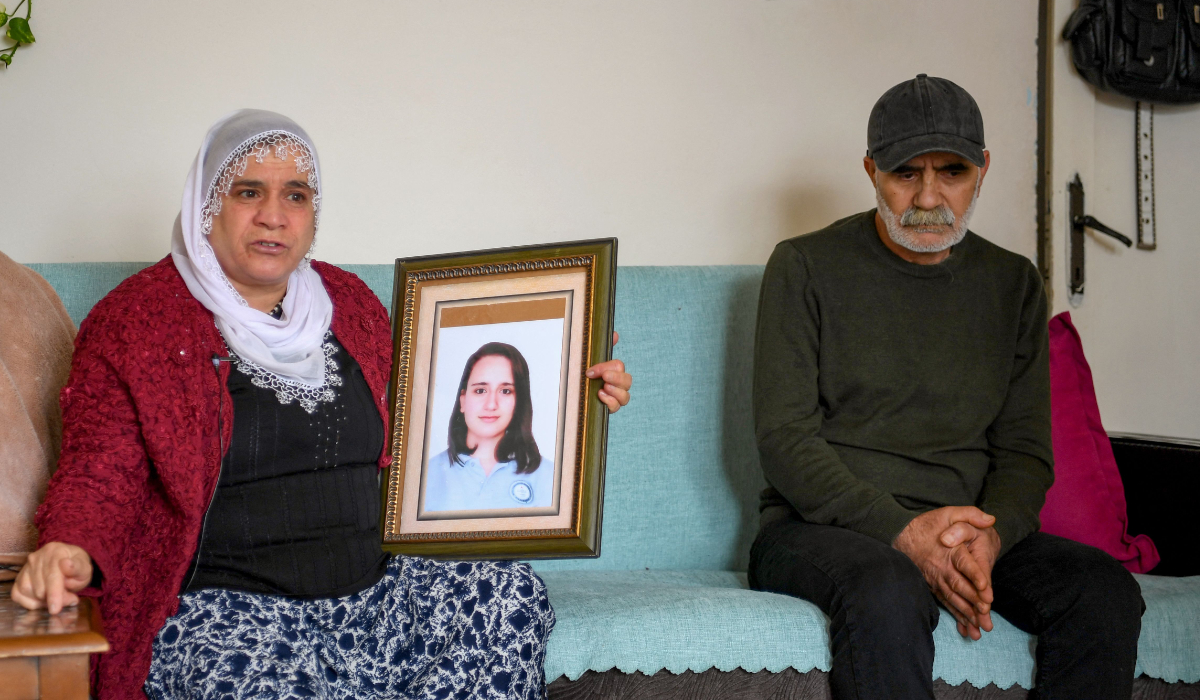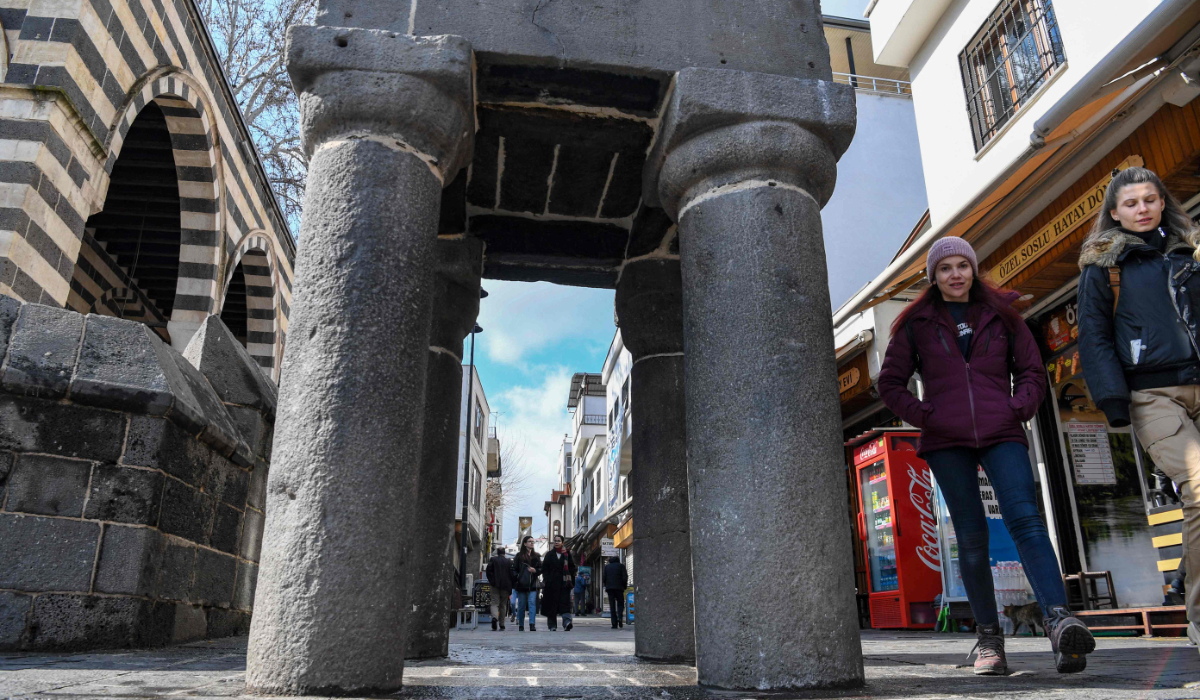JERUSALEM: Israeli Prime Minister Benjamin Netanyahu heads to Washington on Monday, leaving behind a brutal war to make a politically precarious speech before Congress at a time of great uncertainty following Joe Biden’s withdrawal from the presidential race.
With efforts ongoing to bring about a ceasefire between Israel and Hamas, rising concerns about the war spreading to Lebanon and Yemen, and the US in the midst of a dizzying election campaign, Netanyahu’s speech has the potential to cause disarray on both sides of the ocean.
The risks only increased with Biden’s decision Sunday to drop out of the race for president, especially since the choice of a replacement Democratic nominee — and the potential next American leader — are still up in the air.
A person familiar with Biden’s schedule confirmed Sunday that the president will host Netanyahu at the White House. The official, speaking on condition of anonymity because they were not authorized to comment publicly, said the exact timing of the meeting has not been established because Biden is recovering from COVID-19.
Netanyahu is scheduled to address Congress on Wednesday. He is also expected to meet with Vice President Kamala Harris, who is seeking the Democratic Party’s presidential nomination.
An official in Netanyahu’s office confirmed that the Israeli leader was set to travel to Washington on Monday. The official also spoke on condition of anonymity pending a formal announcement.
Netanyahu will deliver his congressional address with an eye on several audiences: his ultranationalist governing partners, the key to his political survival; the Biden administration, which Netanyahu counts on for diplomatic and military support; and Donald Trump’s Republican Party, which could offer Netanyahu a reset in relations if he is reelected in November.
His words risk angering any one of those constituencies, which the Israeli leader cannot afford if he hopes to hold on to his tenuous grip on power.
“There are a few land mines and pitfalls on this trip,” Eytan Gilboa, an expert on US-Israel relations at Israel’s Bar-Ilan University, said before Biden’s withdrawal. “He is thought of as a political wizard who knows how to escape from traps. I am not sure he still knows how to do that.”
It is Netanyahu’s fourth speech to Congress — more than any other world leader. During his address, his far-right governing partners will want to hear his resolve to continue the war and topple Hamas.
The Biden administration will look for progress toward the latest US-backed ceasefire proposal and details on a postwar vision. Republicans hope Netanyahu besmirches Biden and bolsters the GOP’s hoped-for perception as Israel’s stalwart supporter.
Upon receiving the invitation, Netanyahu said he would “present the truth about our just war against those who seek to destroy us.”
The war, which was sparked by Hamas’ Oct. 7 attack on southern Israel, has tested Israel’s ties with its top ally as never before.
The Biden administration has stood staunchly beside Israel. But it has grown increasingly alarmed about the conduct of the Israeli military, the continued difficulties of getting humanitarian aid into Gaza, especially after the short-lived US military pier off Gaza coast, as well as Israel’s lack of postwar plans and the harm to civilians in Gaza. Similar concerns will likely persist if Americans elect a new Democratic president.
Biden earlier this year froze the delivery of certain bombs over fears they would be used in Israel’s incursion into the southern Gaza city of Rafah, which at the time sheltered more than half of Gaza’s population of 2.3 million.
The US abstained from a United Nations Security Council vote in March that called for a ceasefire and the release of hostages but did not link the two. Netanyahu called the decision a “retreat” from a “principled position” by Israel’s ally.
Biden has had to walk a fine line of his own. He has faced harsh criticism from progressive Democrats and many Arab Americans. Even Senate Majority Leader Chuck Schumer, the highest-ranking elected US Jewish official, lambasted Netanyahu in March for his handling of the war.
Some Democrats will likely demonstrate their anger toward Biden and Netanyahu by skipping Wednesday’s speech. Netanyahu is also likely to be hounded by pro-Palestinian activists during his trip.
The last time Netanyahu spoke to Congress in 2015 was at the invitation of the Republican Party. The trip drove Israeli-American politics deep into the partisan divide as Netanyahu railed against then-President Barack Obama’s Iran nuclear deal.
Netanyahu has not shied away from making Israel a partisan issue. With his nationalist conservative ideology, he has been perceived as throwing his support behind Republican candidates in the past, rankling Democrats and Israelis who want to keep the US-Israel relationship bipartisan.
It’s unclear if he will meet Trump. If there is a meeting, it could expose Netanyahu to accusations that he is once again taking sides. But if he doesn’t meet with Trump, the former president could feel slighted.
The speech also offers Netanyahu opportunity. He will be able to show Israelis that despite the tensions with the Biden administration, US support for him remains ironclad.
“He wants the Israeli public to believe that he is very much still very welcome in the United States. And this shows that the American people are with him,” said David Makovsky, director of the program on Arab-Israel Relations at the Washington Institute for Near East Policy.
For critics of Netanyahu, that embrace is unacceptable and grants legitimacy to a deeply polarizing leader whose public support has plummeted. Netanyahu faces widespread protests and calls to resign over the failures of Oct. 7 and his handling of the war.
In a letter to Congress, 500 Israeli writers, scholars and public figures expressed their dismay over the invitation to Netanyahu, saying he will use the platform to advance misguided policies that align with his far-right governing partners.
“His only interest is preserving his own power,” they wrote. “Does the United States Congress wish to support such a model of cynical and manipulative leadership in these times?”
Israeli media reported that Netanyahu will be joined by rescued hostage Noa Argamani and her father. But for many of the families of hostages held in Gaza, the trip is an affront.
“This is not the time for trips,” Ayelet Levy Shachar, whose daughter Naama was kidnapped on Oct. 7, told reporters.
“Netanyahu: First a deal, then you can travel.”
Israel’s Netanyahu walks political tightrope on Washington trip following Biden’s exit from race
https://arab.news/w9kvq
Israel’s Netanyahu walks political tightrope on Washington trip following Biden’s exit from race

- Some Democrats will likely demonstrate their anger toward Biden and Netanyahu by skipping Wednesday’s speech






























